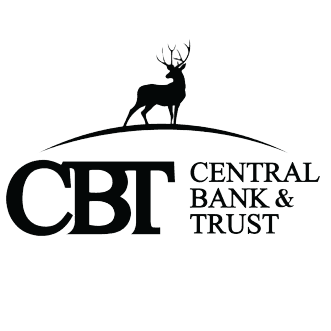SUMMARY
- Separate personal and business finances to establish credit, protect personal assets, and ensure tax accuracy.
- Form an LLC for liability protection and tax benefits, enhancing your business’s credibility.
- Obtain an EIN and DUNS number for tax purposes, banking, and to build your business credit profile.
- Open a business bank account and establish credit through timely payments and controlled credit utilization to build a positive credit history.
693 words ~ 3 min. read

Starting a business is an exciting venture with opportunities and challenges. As a small business owner or entrepreneur, having a brilliant idea and solid plan is not enough to ensure your business can grow and succeed. One crucial aspect often overlooked is establishing and maintaining good credit. This can be vital, especially during tough financial times when access to credit is a lifesaver.
In this article, we’ll walk you through key steps to establish credit for your small business, ensuring you have a financial safety net when needed.
Why You Should Keep Your Personal and Business Finances Separate
One of the first and most important steps in establishing business credit is to keep your personal and business finances separate. Here’s why:
- Professionalism: It demonstrates that your business is a separate legal entity, which is crucial for building credibility with lenders and vendors.
- Tax Benefits: Mixing personal and business expenses can lead to complications during tax season. Keeping them separate makes it easier to track deductions and file taxes accurately.
- Liability Protection: Separating finances protects your personal assets in case your business incurs debt or faces legal issues.
Forming a Limited Liability Company (LLC) is another vital step in establishing business credit. An LLC provides several advantages:
- Limited Liability: As the name suggests, an LLC limits your personal liability. This means your personal assets (like your home and car) are protected if your business incurs debt or faces lawsuits.
- Tax Flexibility: LLCs offer various tax benefits and can be taxed as a sole proprietorship, partnership, S corporation, or C corporation, depending on what suits your business best.
Establishing an EIN and DUNS and Why You Need Them
To establish credit for your business, you’ll need both an Employer Identification Number (EIN) and a Data Universal Numbering System (DUNS) number.
- EIN: Issued by the IRS, an EIN is like a social security number for your business. It’s used for tax purposes, opening a business bank account, and applying for business licenses.
- DUNS: A DUNS number is a unique identifier for businesses, issued by Dun & Bradstreet. It’s used to establish your business credit file, which is crucial for building credit and obtaining loans.
Applying for these numbers is straightforward and can usually be done online. An EIN is free, while a DUNS number may have associated costs depending on the service level you choose.
Open a Business Bank Account
Once you have your EIN, one of the first things you should do is open a business bank account. This account will be the hub of your business’s financial activity, and it helps in several ways:
- Financial Organization: Keeps your business transactions separate from personal ones, making bookkeeping and tax filing easier.
- Credibility: Lenders and vendors will take your business more seriously if you have a dedicated business bank account.
- Credit Building: Some banks offer small loans or lines of credit to new account holders, which can help you establish and build your business credit.
Consider taking out a small loan or opening a line of credit with your business bank account. Ensure you make timely payments to build a positive credit history.
To further build your business credit, open accounts with vendors and suppliers in your business’s name. This step will help you build commercial credit and further legitimize your business.
Tips for Managing Business Credit Accounts
- Timely Payments: Always pay your bills on time to build a positive credit history.
- Monitor Credit Reports: Regularly check your business credit reports from agencies like Experian and Equifax to ensure accuracy.
- Limit Credit Utilization: Keep your credit utilization ratio low to maintain a good credit score. Aim to use no more than 30% of your available credit.
The Takeaway
Starting a business doesn’t always require a large amount of money, but sustaining and growing your business often does. Establishing business credit is a critical step in ensuring your enterprise has a financial safety net during tough times. By keeping your personal and business finances separate, forming an LLC, obtaining an EIN and DUNS number, opening a business bank account, and establishing commercial credit accounts, you’ll be well on your way to building a strong credit foundation for your small business.
—
The Lander Chamber of Commerce is a private non-profit organization that aims to support the growth and development of local businesses and our regional economy. We strive to create content that not only educates but also fosters a sense of connection and collaboration among our readers. Join us as we explore topics such as economic development, networking opportunities, upcoming events, and success stories from our community. Our resources provide insights, advice, and news that are relevant to business owners, entrepreneurs, and community members alike. The Chamber has been granted license to publish this content provided by Chamber Today, a service of ChamberThink Strategies LLC.






















